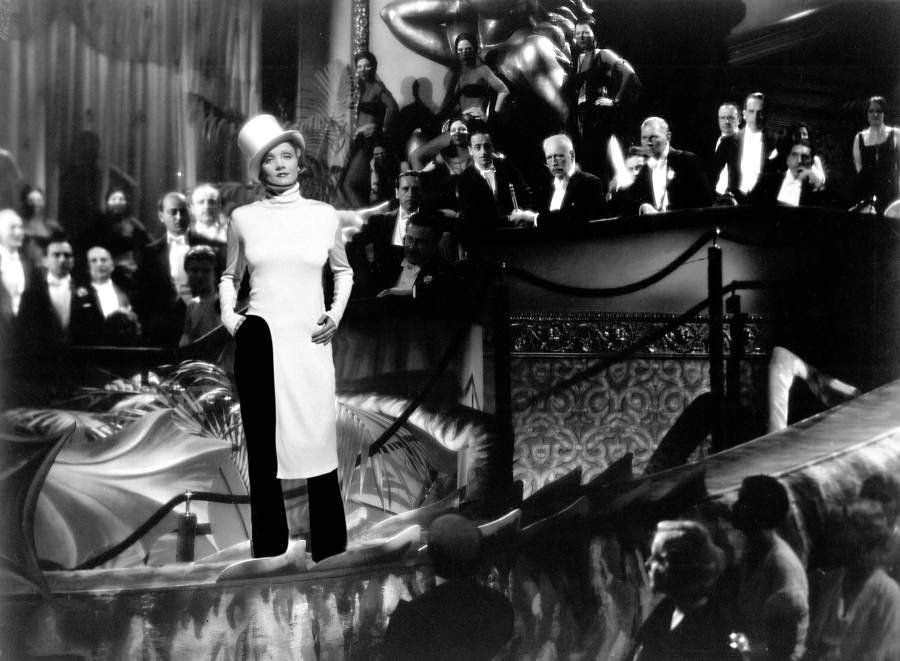

The most striking thing about Marlene Dietrich is precisely how striking she is. Her teaseful smirk, bookmarked by those cheekbones sleek as diamonds, and the perfectly coiffed blonde hair (even when she’s been hiding under an ape mask) never fail to take our breath away. No wonder Josef von Sternberg built such extravagant introductory scenes in the movies they did together. Besides the aforementioned mask from Blonde Venus, which acts as more of a re-introduction (she’s meeting her second love interest), in Sternberg’s films Dietrich gets to appear as a naked nymph floating on a mirror like pond, an erotically charged cabaret performer descending from the heavens into a pit of perdition, and a seductive devil her eyes hidden by a black lace mask.
Even if you’ve seen her films hundreds of times, those moments when Marlene first appears onscreen never fail to send a jolt down our spines, and there’s simply no better way to experience these moments than on the big screen, which is why Metrograph’s retrospective simply titled Marlene feels like a perfect antidote for the vacuousness of summer blockbusters. The films in the series could well make a case for Dietrich having superpowers comparable to any of the ones we see in films about flying aliens and masked avengers. After all, she makes grown men try to kill each other to win her love, and she seems to command the worlds in which her films take place.
Take for instance the fable-esque Spain of the tongue in cheek The Devil is a Woman, in which Dietrich plays a social climber who attracts powerful men to her like a magnet, only to aid them in aiding her become one of the most powerful women of her time. If Dietrich’s Concha seems almost too nonchalant in her disposal of the men who throw themselves at her (including a ferocious César Romero who convinces himself to be the one to tame her spirit), Dietrich can’t help but make us root for her characters. We can’t help but melt at her will.
In the preposterously plotted Blonde Venus, Dietrich is saint, mother and sex symbol (boy did she contain multitudes!) who will do anything to make her husband happy, even if it means throw herself into misery and self-exile when she fails to pass his tests of morality. By our modern standards we wish for her character in the film to escape the chauvinist worldview of the man who claims to love her, but Venus is proof if nothing else that Dietrich could sell us anything. By the end of the film she has made us shed all the tears without seeming to make much of an effort. Just the way she looks at the little boy playing her son is enough to send us into an abyss of sadness.
There really isn’t a bad film in the Metrograph series, mostly because Marlene makes everything compulsively watchable. Sitting in the dark wondering how someone like her once roamed the earth and that we were lucky enough to have some of the masters of the form (Lang! Mamoulian! Hitchcock! Wilder! Welles!) preserve her for posterity is akin to a spiritual experience. To refuse Marlene’s siren call would be the truly sinful thing.
For more on Marlene at Metrograph click here.